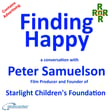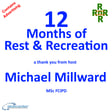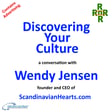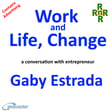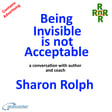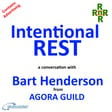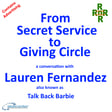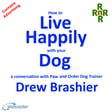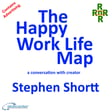
Adding Value To Your Rest and Recreation – a conversation with Jennifer Mullowney
Jennifer Mullowneyis a licensed clinical social worker with over 20 years of experience in the mental health field, and the founder of Crossroads Counselling Services.
Jennifer has seen clients struggle with finding a work/life balance and seen them want to do nothing in their rest and recreation time, which can potentially make their problems worse.
In this episode of the Abeceder work life balance podcast Rest and Recreation Jennifer explains to host Michael Millward how she helps clients identify ways in which they can use their rest and recreation time more effectively.
During their conversation Jennifer and Michael discuss the reasons why people find using their rest and recreation time effectively and identify several ways in which they can be more proactive about how they use their rest and recreation time.
You will leave this episode feeling inspired to be more deliberate about how you use your own rest and recreation time.
Rest and Recreation is made on Zencastr, because creating podcasts on Zencastr is so easy, you can as well by visiting Zencastr and using our offer code ABECEDER.
Travel – at trade prices anywhere in the world at trade prices on flights, hotels, trains, and holidays as members of The Ultimate Travel Club.
Health – York Test provides an Annual Health Test. An experienced phlebotomist will complete a full blood draw at your home or workplace. Hospital standard tests covering 39 different health markers are carried out in a UKAS-accredited and CQC-compliant laboratory.
A Personal Wellness Hub gives access your easy-to-understand results and guidance to help you make effective lifestyle changes anytime via your secure, personal Wellness Hub account.
Visit York Test and use this discount code REST25.
Tech Problems? – Visit Three for information about business and personal telecom solutions from Three, and the special offers available when you quote our referral code WPFNUQHU.
If you have liked this episode of Rest and Recreation, please give it a like and download it. To make sure you do not miss future editions please subscribe.
Remember, the aim of all the podcasts produced by Abeceder is not to tell you what to think, but we do hope to make you think!
Being a Guest
If you would like to be a guest on Rest and Recreation, please contact Abeceder.
Matchmaker.fm introduce many guests to Rest and Recreation. Matchmaker.fm is where great hosts and even greater guests are matched, and fantastic podcasts are hatched. Use code MILW10 for a discount on membership.
We recommend that potential guests take one of the podcasting guest training programmes available from Work Place Learning Centre.
Thank you to you for listening.
We appreciate every like, download, and subscription.




